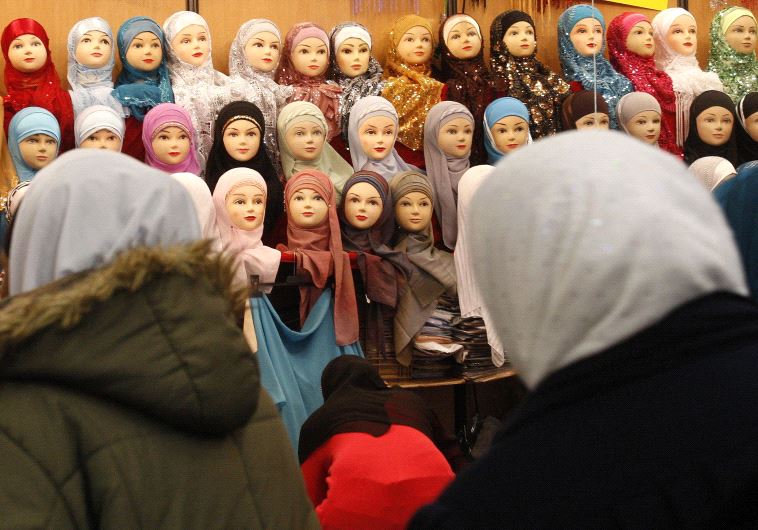Top EU court to give first ruling on Islamic headscarf bans
Companies should though consider the conspicuousness of such symbols and the nature of the employee's activities.
 Women look at headgear of Muslim women inside an exhibition hall s at Le Bourget
Women look at headgear of Muslim women inside an exhibition hall s at Le Bourget